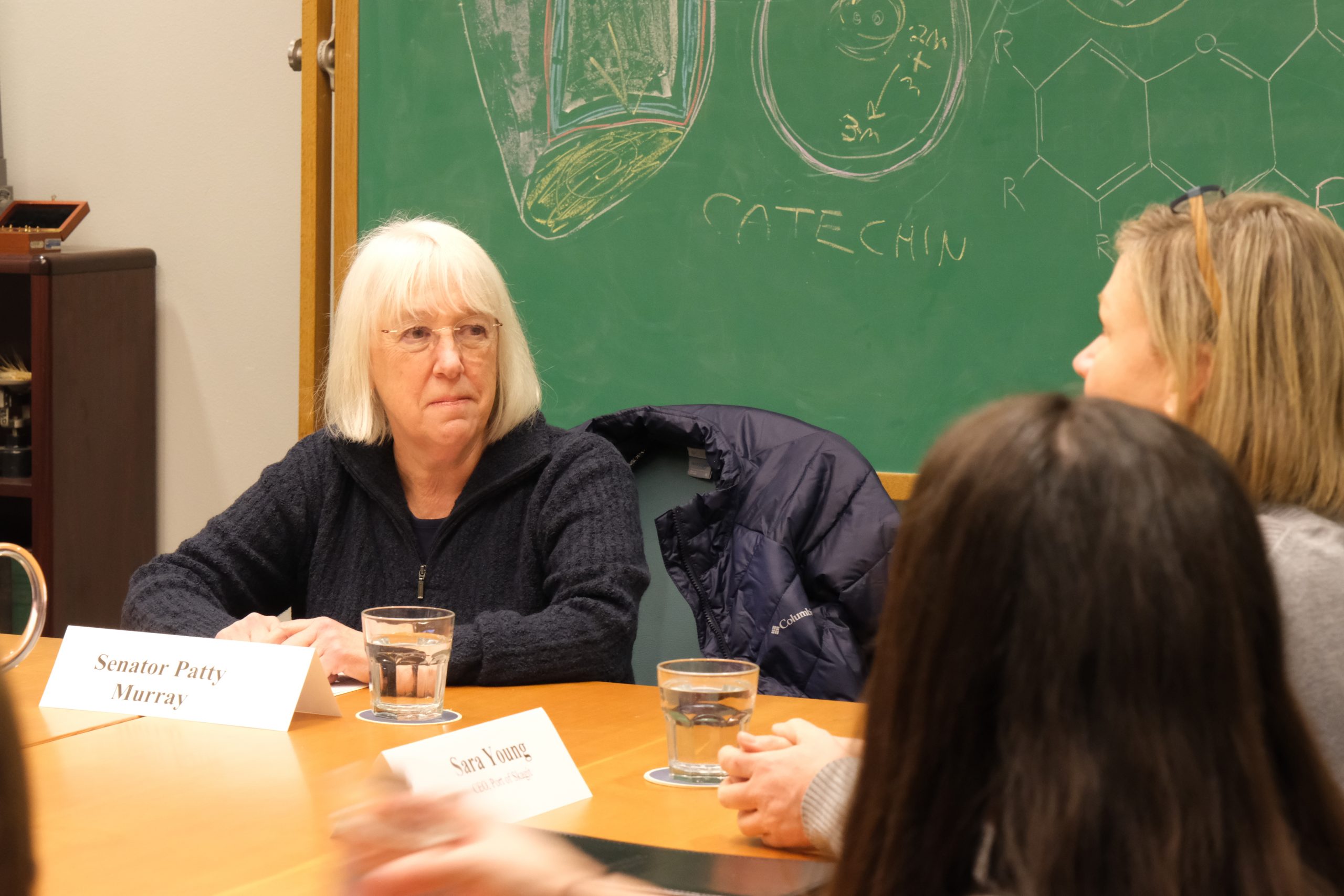Since 2018, Washington state’s Foundational Community Supports program has used Medicaid dollars to help house people with medical and mental health issues experiencing or at risk of homelessness
New HHS-HUD Accelerator program Murray pushed for will help WA expand and better implement its Medicaid-covered housing programs, making it easier for people with complex medical needs to get stable housing
As Appropriations Chair, Senator Murray secured funding in draft HUD appropriations bill to expand this initiative in future years
Washington, D.C. – Today, U.S. Senator Patty Murray (D-WA), Chair of the Senate Appropriations Committee, announced that Washington state was selected to participate in the Housing and Services Partnership Accelerator, a brand-new federal partnership between the Departments of Housing and Urban Development (HUD) and Health and Human Services (HHS). The program—which Senator Murray pushed for and is working to fund in Fiscal Year 2024 government funding legislation—will help states unlock critical resources to reduce homelessness, provide intensive assistance to help states develop, implement, and improve Medicaid-covered housing services, and support people with disabilities or older adults at risk of homelessness. The coordination of housing assistance and wrap-around supportive services, like supportive housing, is a proven, cost-effective approach to assisting people with disabilities and complex health conditions in transitioning from homelessness to stable housing. Washington state was one of eight states in addition to Washington, DC selected through a competitive application process for participation in the Accelerator program.
In 2015, the Centers for Medicare & Medicaid Services (CMS) authorized the use of Medicaid funding to help house people experiencing homelessness who are facing medical or mental health issues, including substance use disorders. Washington state was the first in the nation to take advantage of this authorization, creating the Foundational Community Supports program that launched in 2018 and has served more than 40,000 individuals with over 200 statewide contracted providers since then. Through the Medicaid-funded program, service providers can enroll clients and bill the program for time spent helping clients obtain and keep housing or employment, such as through homelessness outreach and case management services. In 2022, building off the Foundational Community Supports program, Washington created Apple Health and Homes, a multi-agency state program funded through Medicaid that provides housing to people with health and behavioral health challenges.
“Treating housing as part of health care has been a real breakthrough in Washington state, where we are putting Medicaid dollars to work helping people who are facing mental and behavioral health challenges stay off the streets and in stable housing,” said Senator Murray. “This approach saves lives—and it saves money for Medicaid overall. Being selected for the Accelerator program means that Washington state will receive intensive technical assistance and other federal support over the next year to improve the implementation of our Medicaid-funded supportive housing programs and better serve people at risk of homelessness. This kind of partnership is really promising, which is why I advanced funding in our draft appropriations bills to expand the Accelerator program in future years— and will keep working to support this effort at the federal level.”
As Chair of the Appropriations Committee, Senator Murray is pushing to expand the Accelerator program—the draft Senate Housing Appropriations bill she wrote for Fiscal Year 2024 included federal dollars for capacity-building grants and direct technical assistance to communities leveraging Medicaid and other funds to connect individuals experiencing homelessness to housing-related services and behavioral health care. Fiscal Year 2024 funding bills are still being negotiated between the Senate and House.
As a part of the Accelerator and other initiatives, Washington seeks to expand partnerships with public housing agencies to develop programs that create pathways to community housing options and promote community integration and housing choice. Through the 12-month Accelerator program specifically, Washington state hopes to develop a pilot that can be scaled over the two-year period. The team is led by the state’s Medicaid agency and includes partners from the Aging and Long-Term Support Administration’s office of housing and employment and the state Department of Commerce’s Office of Apple Health and Homes, with support from key stakeholders in the aging and disability networks and housing and homelessness services providers.
Over the next twelve months, HUD and HHS will provide Washington state and the other states chosen for the Accelerator with intensive federal technical assistance and opportunities for state peer-to-peer exchange to support their implementation of clinically-indicated housing-related services and supports under their Medicaid programs for people with complex health needs experiencing or at risk of homelessness, including: people with disabilities, older adults, people with mental health disorders, people with substance use disorders, and people with other chronic medical conditions. By receiving this federal technical assistance, states will be able to improve their coordination and delivery of services, including: navigation services, ongoing individualized case management, one-time transition assistance, and home modifications that can help people experiencing or at risk of homelessness to obtain and maintain stable housing.
Senator Murray has consistently worked to address Washington state’s housing crisis and has secured major federal investments to help families keep a roof over their heads. Throughout the pandemic, Senator Murray—then Chair of the Senate Health, Education, Labor and Pension (HELP) Committee—played a major role in writing federal COVID-19 relief legislation that secured major support for people facing housing insecurity, championing sizable investments in rental assistance and other programs that collectively resulted in the largest eviction prevention effort in American history. At the beginning of this Congress, Senator Murray called on President Biden to utilize a “whole of government” approach to addressing our nation’s housing needs. In the most recent government funding bill signed in December 2022, Senator Murray helped secure a $6.5 billion funding boost for HUD, including $3.63 billion in total funding for Homeless Assistance Grants—a $420 million increase over the previous year. As a longtime appropriator, Senator Murray has always fought for the strongest possible federal investments in housing and supports to prevent and end homelessness, even under difficult financial constraints.
###


